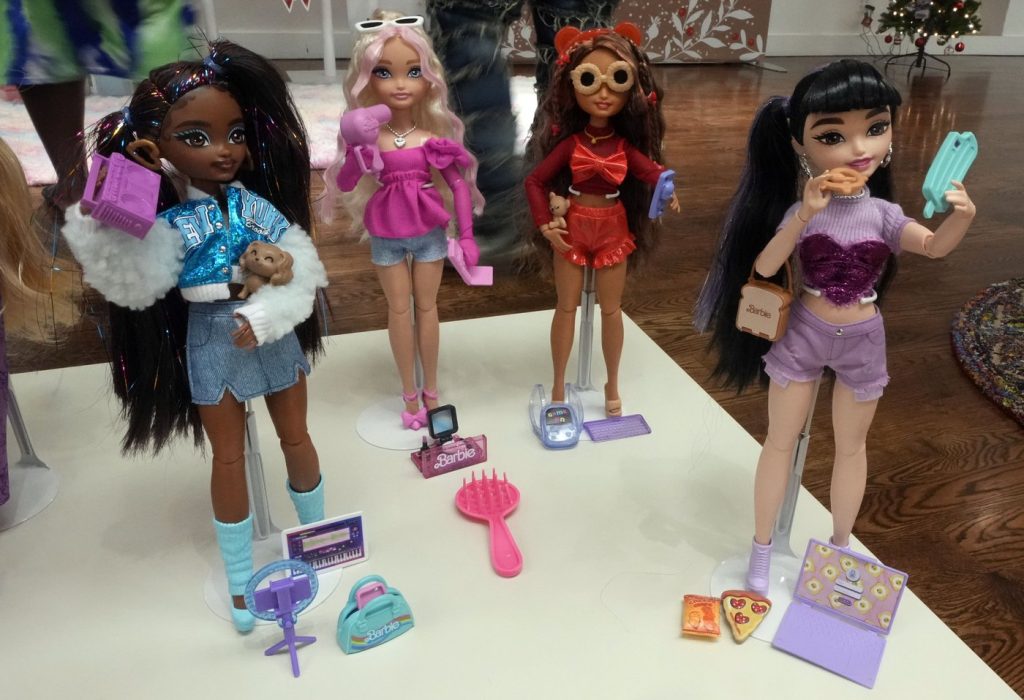NEW YORK (AP) Recent trade tensions and the imposition of tariffs by the Trump administration have caused significant anxiety among global companies and major retailers in the U.S. Many well-known brands have already raised their prices or warned of forthcoming hikes due to increased costs associated with these tariffs.
President Donald Trump has introduced new import taxes affecting nearly all of America’s trading partners. This includes sector-specific goods and has prompted retaliatory duties from countries like China. Even though several steep tariffs have been paused or reduced, many remain in place, piling up costs for businesses that rely on foreign products. Companies facing these tariffs generally pass the added expenses onto consumers, leading to concerns about rising prices for everyday goods from groceries to auto repairs.
The reality of increased prices has started to impact businesses and their customers. Notable retailers that have recently announced price increases or foresee them in the future include:
Walmart
Walmart, the nation’s largest retailer, confirmed on Thursday that it would need to raise prices due to higher costs from tariffs. While about two-thirds of its merchandise is sourced from the U.S., Walmart is still facing challenges. Chief Financial Officer John David Rainey mentioned that the prices of essential items are going up. For instance, the price of bananas from Costa Rica increased from 50 cents to 54 cents per pound, and car seats imported from China are expected to rise by $100, from $350 to $450.
“We’re wired to keep prices low, but there’s a limit to what we can bear,” Rainey stated in an interview.
Mattel
Mattel Inc., known for its iconic Barbie dolls and Hot Wheels cars, announced earlier this month that it would likely raise prices “where necessary” to address tariff impacts. With 40% of its products manufactured in China, Mattel warned about potential price hikes, especially after the U.S. and China reached a temporary agreement to lower tariffs for a limited time. In its upcoming plans, Mattel intends to shift about 500 products from China to other countries, as opposed to 280 in the previous year, and may use multiple countries for manufacturing certain high-demand toys.
Microsoft’s Xbox
In early May, Microsoft increased its recommended retail prices for Xbox consoles and controllers globally. The price for the Xbox Series S is now $379.99, up from the initial $299.99 when it was launched in 2020, while the Xbox Series X saw a $100 increase, now priced at $599.99. Microsoft attributed these changes to broader market conditions and rising development costs, though they did not specifically mention tariffs.
Stanley Black & Decker
The tool manufacturer Stanley Black & Decker raised its prices in April and plans further hikes in the upcoming quarter due to ongoing tariffs. CEO Donald Allan, Jr. expressed that the company is adjusting its supply chain strategies to minimize tariff impacts on consumers while still protecting the business's long-term goals and innovation capabilities.
Procter & Gamble
Executives at Procter & Gamble, the producer of well-known brands such as Crest toothpaste and Tide detergent, have indicated they will likely pass on higher costs to consumers. The company is actively seeking ways to mitigate the effects of tariffs, including altering sourcing and product formulations. However, they anticipate that consumers may start noticing price increases as early as July.
Overall, as these major companies respond to the ongoing trade wars and associated tariffs, consumers may soon face increased prices on a wide range of products.











